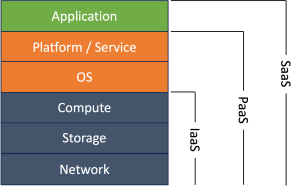When evaluating a new CISO role it is common to do research on the company, industry, product line, etc., but an area that is often overlooked are SEC filings like the SEC Form 10-K and board committee charters. SEC filings and committee charters can offer a wealth of information about how a company views and governs key issues like cybersecurity and risk. In this post I’ll cover where to find key information, red flags to watch out for and other useful information that can be discussion topics during the interview process.
Finding The Right Forms
If you are new to reviewing SEC filings and corporate governance documents there are a number of places to find documents about corporate governance and how the company strategically views cybersecurity and risk. These documents will provide insight into who you may need to influence in order to execute a successful security program and it will also give you an implicit understanding of the priority the company assigns to cybersecurity issues. The two best places to find relevant forms are on SEC.gov (Edgar) or on the company’s own investor relations website.
SEC Forms
The most common SEC forms you will want to review when preparing for a new CISO role are the SEC Forms 10-K, 10-Q and 8-K.
- 10-K: The SEC Form 10-K is a comprehensive annual report filed by public companies. It has a wealth of information such as their financials, how they view the market, executive compensation and more. When considering a new CISO role definitely check out section 1 and 1A. Section 1 covers an overview of the business and section 1A covers macro risk factors (you may be asked to help mitigate these risks). Section 1 may also specifically call out cybersecurity governance and have details on the reporting structure, responsibilities, experience and methods for governing cybersecurity at the company. Also check out section 7, which will detail how management describes the company and can also have details on recent acquisitions or restructuring activities, which could continue to present a risk to the business.
- 10-Q: The SEC Form 10-Q is a comprehensive quarterly report filed by the public company. This will detail their quarterly results and will also provide any updates or changes to the sections I listed above – mainly section 1, 1A and section 7. Most of the time there won’t be any updates to these sections and they will refer back to the 10K, but it is still good to review the latest 10-Q available.
- 8-K: The SEC Form 8-K is a form companies must file to notify investors of major events. The biggest thing CISO candidates will want to review is if the company has had any material cybersecurity or operational incidents. However, if the company deems an event isn’t material it may not be in the 8-K and so it is a good idea to do a web search of the company as well.
- Committee Charter Docs: The last set of documents to review are the committee charter documents. This will tell you how the board is structured, which can give you insights into what to expect if you take the role and give periodic updates to the board. The committee charter documents will also outline how they govern cybersecurity, risk and technology and the committee charter documents can give you implicit insight into how the company views the role of the CSO / CISO and cybersecurity.
How Should Cybersecurity Be Governed?
When reviewing the governance and committee documents of a public company, you may find cybersecurity discussed in different places. You should review these documents and also consider discussing cybersecurity governance during the interview process.
Audit committee
The audit committee is the most common committee to govern cybersecurity and risk at a public company. The challenge with placing cybersecurity and risk in the audit committee is the primary function of that committee is financial accuracy and integrity. Cybersecurity and risk are typically listed as “other functions”, which runs the risk of it not having the same priority as financial activities and the committee members may not have the right expertise to govern these functions. The typical executive experience of an audit committee member can be CEO, CFO or COO and these individuals typically aren’t experts in cybersecurity or risk. It isn’t the end of the world, but as a CISO candidate you should review the backgrounds of the audit committee board members and ask how they interact with existing C-Level executives when discussing cybersecurity, technology and risk. You may even want to ask to interview with one of the committee members before taking the job. The main goal is to make sure you are going to get the consideration, prioritization and support you need.
Tech and cyber committee
Aside from the audit committee, the other committee that governs cybersecurity and risk is the technology and cyber committee. However, the existence of this committee is currently non-standard at public companies even though it is considered best practice for corporate governance. If the company you are interviewing has a technology and cybersecurity committee consider yourself fortunate, but you should still do your own due diligence by researching the existing committee members and their backgrounds. Consider requesting an interview with one of these committee members (if it isn’t part of the interview process) to get their perspective on cybersecurity governance and issues at the company.
The challenge with placing cybersecurity and risk in the audit committee is the primary function of that committee is financial accuracy and integrity.
Other Cybersecurity Governance Aspects To Consider
There are a few other aspects to consider when reviewing corporate governance documents. These other areas can give you valuable insight into what is expected of you if and when you assume the role of CISO at the company. First, I recommend covering materiality during the interview process. Ask if the company has a process and if possible discuss their criteria for determining materiality of a security incident. Second, review and assess how often the board committee responsible for cybersecurity meets. This can give you an idea of how often you will be expected to present to the board and may even give you an idea of the topics that are discussed.
Red Flags
The whole point of reviewing these documents is to help you make an informed decision about what you are walking into if you take the role. There are few red flags you should look out for in these documents that should definitely be discussed during the interview to make sure you are clear on your role and expectations. These red flags may also help you when negotiating for things like severance, inclusion in the D&O liability policy or other concessions.
10-K & 10-Q
Remember, the 10-K and 10-Q will have a section on risks and the company may specifically call out cybersecurity risk as a macro issue they are concerned about. However, one red flag I would bring up for discussion is does the company address how they plan to manage these risks? Something as simple as “we plan to discuss and manage these risks inline with business priorities and expectations to minimize their impact” indicates they have at least given it some thought. Even better, if the company has a detailed section on risk and risk management that addresses how they plan to govern the company to address these risks. If the 10-K and 10-Q just list the risks, it may be an indication the company is paying lip service to cybersecurity or it could mean they are waiting for the right candidate to come in and develop a plan.
Experience Of Committee Board Members
Another potential red flag is the background and experience of the board members for the committee that governs cybersecurity and technology risk. Review their background, how long they have been serving on the board and when they are up for re-election. If the committee members have a strong technology or cybersecurity background you can expect to find an ally in the board room. If the committee members haven’t been technology executives you may find you have to change your message or do some education when reporting to the board. The SEC has indicated cybersecurity experience is necessary for the board to effectively govern risks, so if there isn’t clear experience, it is something to bring up in the interview for how and when the company is planning to address the experience gap.
Cybersecurity As Part Of The Audit Committee
I previously mentioned most public companies have cybersecurity listed as an additional function of the audit committee. This can be a red flag if the board doesn’t have committee members with technology experience, but can also be a red flag if the company views the CISO role and security program as more of a compliance function. The view of the board will be directly related to how much funding and support you are able to get from the rest of the company like the CEO and CFO.
Having cybersecurity and risk as part of the audit committee can also lead to a disconnect from the main security program. For example, if the audit committee treats security more as a compliance function, they may request a group that reports directly to them that audits the effectiveness of the corporate security program. This can lead to duplication of effort, cross purposes and mixed messaging at the board level. It can also undermine the authority of the CISO if the board is independently dictating security actions to the company outside of the main security program. However, having cybersecurity as part of the audit committee isn’t the end of the world and can actually lead to support from the board, but it will require additional effort and relationship management to make sure the board is supporting your program effectively. These are all topics you will want to explore during your interview.
Other SEC Filings
There are a few other areas you should review when conducting research for a new CISO position. I highly recommend reviewing recent 8-K filings and conducting internet searches to see if the company has reported any recent security incidents or breaches. If they have, you may be walking into a situation where they need immediate help to get back to a good state, but that support may wane after the urgency of the situation dies down. If you are considering taking a role that is walking into a post incident situation, be really clear on expectations and success criteria and try to build those into your employment contract.
The other area I recommend reviewing is recent or ongoing M&A activity. This will be listed in the 10-K or 10-Q filings for the company and it can give you some insight into what you may be walking into as a CSO / CISO. M&A activity is notorious for “closing the deal” and then sorting everything out later. As a CISO this means you could be inheriting a heterogenous security program or you may have to spend a significant amount of time up-leveling the acquisition to meet the standards of the rest of the company. There may even be extensive integration, standardization, etc. that needs to be completed. All of these are risks that you should be aware of when walking into a new CISO role.
Wrapping Up
When evaluating a new CISO role for a public company I recommend thoroughly researching the company as part of your evaluation process for the role. Familiarize yourself with their business model, the latest news articles, key members of the executive staff, board members and financial statements. If you have a strong CISO network I recommend reaching out to them and getting their perspective on the position. However, overlooked areas of research are the public company filings with the SEC and other investor relations documents that can give you more perspective on the company. It is particularly important to review these documents to get an idea of how the company governs cybersecurity and risk. These documents will also highlight potential red flags and discussion topics to explore during your interview. Thoroughly researching the company and the role will not only help prepare you for the interview process, but can also give you insight into how other public companies govern these issues so you can compare with your current position and make the best decision possible for your career.
Resources










